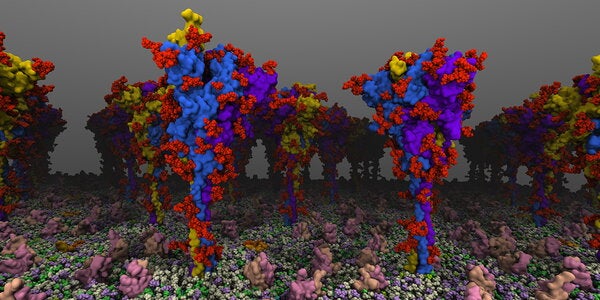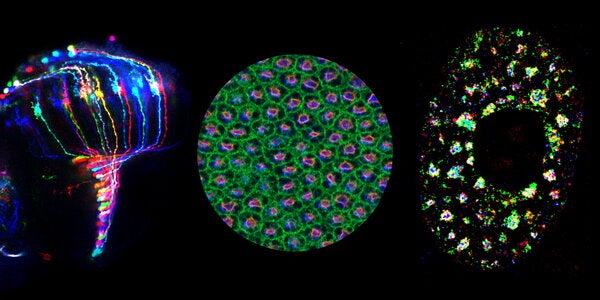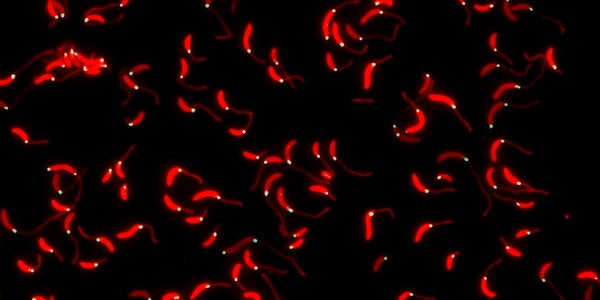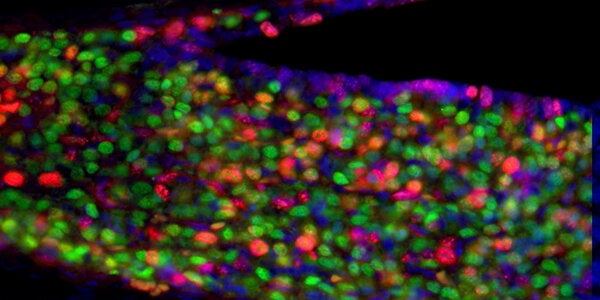Academic Departments in the School of MCB
Inspiration. Innovation. Impact.
The mission of the School of Molecular and Cellular Biology is to educate undergraduate and graduate students as well as train postdoctoral fellows in the biological sciences with an emphasis on discovering the fundamental principles supporting life, at all scales, from microbes to humans. The school accomplishes this task through the concerted efforts of the Departments of Biochemistry, Cell & Developmental Biology, Microbiology, and Molecular & Integrative Physiology along with the Center for Biophysics & Quantitative Biology and the campuswide Neuroscience PhD Program. We deliver a high-quality curriculum and provide cross-disciplinary research experiences preparing our trainees for diverse careers. Simultaneously, the faculty, staff, students, and fellows conduct world-class research producing seminal discoveries that advance our understanding of how life functions in both normal and disease states.
School of MCB departments
Title
Affiliated centers and programs
History of MCB
Excerpted from Doug Peterson's MCB newsletter article detailing the school's industrious history.
The nineteenth century has been called “the Age of Engineering” and the twentieth “the Age of Chemistry and Physics.” But what does that make this century? The late Charles Miller, MCB’s first director, saw the twenty-first century as the emerging Age of Biology. So it was only fitting that the new School of Molecular and Cellular Biology would have its genesis in the year 2000, just as we crossed the threshold into the new century and new millennium.
According to Charles Miller, "the reorganization plan for MCB was fundamentally based on the idea that the dramatic progress in the biological sciences had not just blurred the lines between the disciplines represented by our four departments, but in a significant way had caused these disciplinary lines to disappear. Many faculty members in each of our departments could have fit comfortably in one or more of the other departments. But overall, all four departments shared a common scientific culture with more similarities than differences. We also realized that our undergraduate students required a more focused and progressive curriculum. We hoped to provide them with a broad background that would prepare them not only for graduate and professional schools but also for entry into the biotechnology, pharmaceutical, and other industries seeking workers trained in molecular and cellular biology.”
Established in 2000, the School of Molecular and Cellular Biology, along with the School of Integrative Biology, was created as a successor to the School of Life Sciences (1959-1999). MCB absorbed three departments from the School of Life Sciences, with two changing their names, eventually resulting in the Departments of Microbiology, Cell and Developmental Biology, and Molecular and Integrative Physiology. The Department of Biochemistry, previously a part of the School of Chemical Sciences, joined the newly-formed School of MCB.



